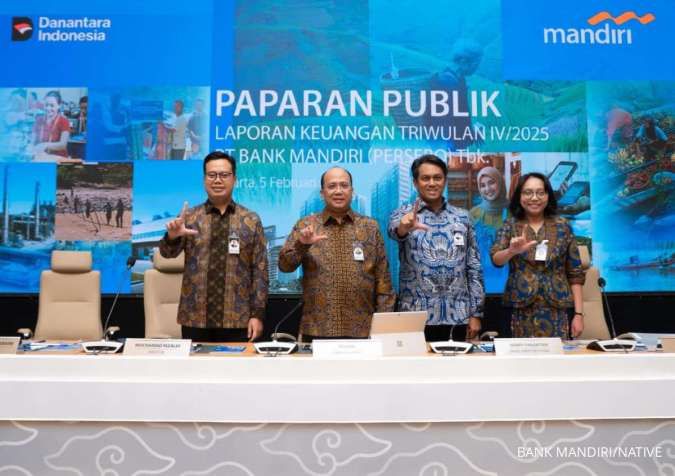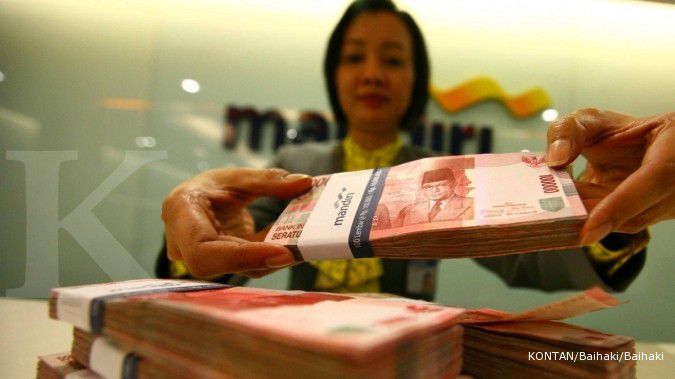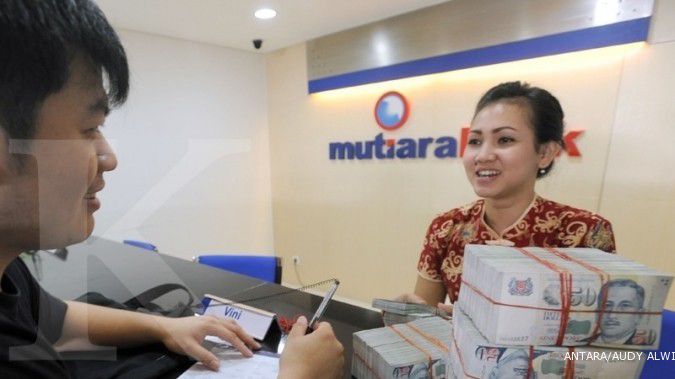JAKARTA. The Deposit Insurance Corporation (LPS) has received Rp 924 billion (US$92.4 million) in claims from qualified accounts of the banks which have been closed down due to financial problems since its establishment in September 2005. The LPS, an independent institution assigned to guarantee deposits of the nation’s banks, had paid Rp 691 billion of the claims so far, according to LPS risk management director Salustra Satria. “The disbursement process has reached 95 percent,” he said in Jakarta on Wednesday. The LPS currently only covers savings or deposits worth no more than Rp 2 billion for each Indonesian depositor. Since its establishment in 2005, at least 50 banks have been liquidated with total third-party funds of Rp 1.19 trillion from 96,220 accounts. However, Salustra said, more than 7,800 accounts worth Rp 266 billion, were not valid to receive compensation payment. “Some of the banks set their interest rates higher than the LPS’ benchmark rates and therefore were not guaranteed,” he added. The LPS set its latest benchmark guarantee deposit rates at 5.75 percent for rupiah time deposits and 1.25 percent for foreign currency time deposits for all commercial banks. Meanwhile, its rate for rural banks (BPR) stands at 8.25 percent. The agency does not provide guarantees on savings or deports carry interest rates higher than its guaranteed rates. Banks are required to pay 0.1 percent of their average third-party funds (DPK) — which covers savings, time deposits and demand deposits — to the LPS twice a year. According to LPS executive director Mirza Adityaswara, the bank payments are still low compared to the current total banking DPK. “Banks are required to pay 0.2 percent of their total DPK. In other countries, the requirement is set at between 2 percent and 4 percent. So LPS’ funds only stand at about Rp 31 trillion, while the total DPK has exceeded Rp 3,300 trillion,” he said. Meanwhile, the LPS will hold a meeting within the next three weeks to decide on the new rate following the rise in the central bank’s benchmark rate. “We don’t know yet what the banks will do, but, theoretically, they will increase their time deposit rates, triggered by higher Fasbi rate. When they do that, we will set new LPS rates,” Mirza said. Bank Indonesia (BI) raised its benchmark interest rate by 50 basis points to 6.5 percent on Friday to counter the surge in the inflation. Separately, Diah Hindraswarini, BNI’s executive vice president for product management consumer and retail banking, confirmed that the state-owned bank planned to increase its time deposit rates in August. As of now, its annual rates range from 4.5 percent to 5.25 percent for the rupiah deposit with funds more than Rp 1 billion. “This will be the first rate increase throughout 2013. However, we have not decided on the exact amount yet because we still have to observe the current economic situation,” she said during a telephone interview. At the moment, BNI offers several time deposit products, which cover rupiah and foreign currency, ranging from one month to 24 months. “The one month deposit is the most preferred by customers so far,” Diah added. As of June 2013, BNI’s time deposits amounted to Rp 74.96 trillion, equal to 29 percent of the bank’s total third-party funds (DPK). (Tassia Sipahutar)
LPS pays claims worth Rp 691 billion
JAKARTA. The Deposit Insurance Corporation (LPS) has received Rp 924 billion (US$92.4 million) in claims from qualified accounts of the banks which have been closed down due to financial problems since its establishment in September 2005. The LPS, an independent institution assigned to guarantee deposits of the nation’s banks, had paid Rp 691 billion of the claims so far, according to LPS risk management director Salustra Satria. “The disbursement process has reached 95 percent,” he said in Jakarta on Wednesday. The LPS currently only covers savings or deposits worth no more than Rp 2 billion for each Indonesian depositor. Since its establishment in 2005, at least 50 banks have been liquidated with total third-party funds of Rp 1.19 trillion from 96,220 accounts. However, Salustra said, more than 7,800 accounts worth Rp 266 billion, were not valid to receive compensation payment. “Some of the banks set their interest rates higher than the LPS’ benchmark rates and therefore were not guaranteed,” he added. The LPS set its latest benchmark guarantee deposit rates at 5.75 percent for rupiah time deposits and 1.25 percent for foreign currency time deposits for all commercial banks. Meanwhile, its rate for rural banks (BPR) stands at 8.25 percent. The agency does not provide guarantees on savings or deports carry interest rates higher than its guaranteed rates. Banks are required to pay 0.1 percent of their average third-party funds (DPK) — which covers savings, time deposits and demand deposits — to the LPS twice a year. According to LPS executive director Mirza Adityaswara, the bank payments are still low compared to the current total banking DPK. “Banks are required to pay 0.2 percent of their total DPK. In other countries, the requirement is set at between 2 percent and 4 percent. So LPS’ funds only stand at about Rp 31 trillion, while the total DPK has exceeded Rp 3,300 trillion,” he said. Meanwhile, the LPS will hold a meeting within the next three weeks to decide on the new rate following the rise in the central bank’s benchmark rate. “We don’t know yet what the banks will do, but, theoretically, they will increase their time deposit rates, triggered by higher Fasbi rate. When they do that, we will set new LPS rates,” Mirza said. Bank Indonesia (BI) raised its benchmark interest rate by 50 basis points to 6.5 percent on Friday to counter the surge in the inflation. Separately, Diah Hindraswarini, BNI’s executive vice president for product management consumer and retail banking, confirmed that the state-owned bank planned to increase its time deposit rates in August. As of now, its annual rates range from 4.5 percent to 5.25 percent for the rupiah deposit with funds more than Rp 1 billion. “This will be the first rate increase throughout 2013. However, we have not decided on the exact amount yet because we still have to observe the current economic situation,” she said during a telephone interview. At the moment, BNI offers several time deposit products, which cover rupiah and foreign currency, ranging from one month to 24 months. “The one month deposit is the most preferred by customers so far,” Diah added. As of June 2013, BNI’s time deposits amounted to Rp 74.96 trillion, equal to 29 percent of the bank’s total third-party funds (DPK). (Tassia Sipahutar)





